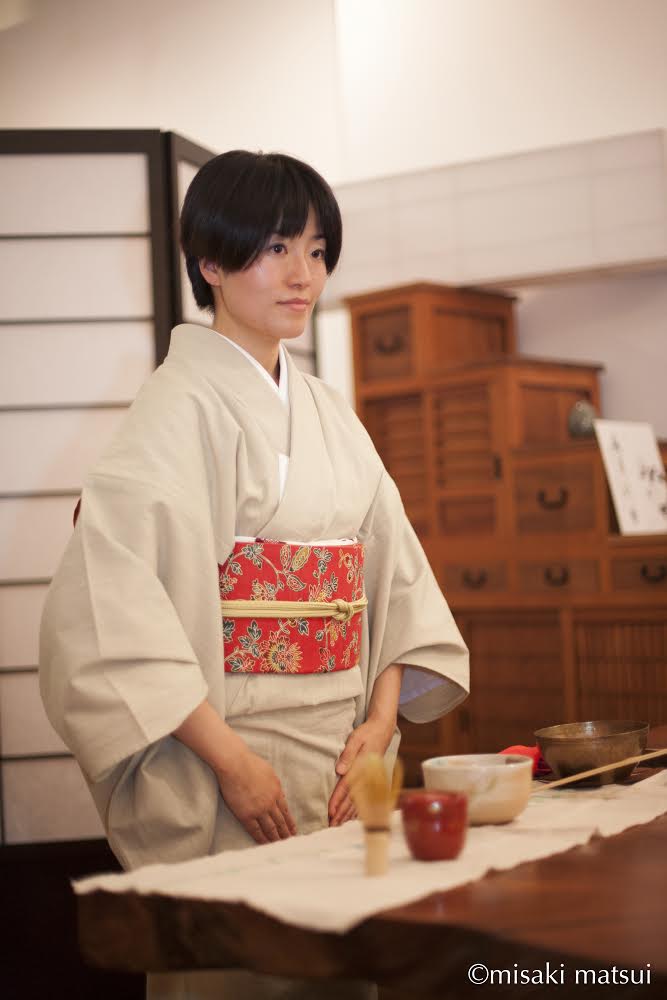Tea Drinker: Souheki Mori
By Tea Lover

I was sorely tempted to prod Souheki for longer, fuller answers to my questions about the value of the Japanese tea ceremony. Upon reflection, however, I thought it better to leave her responses as they were – simple, straightforward, but full of meaning. There was something about the brevity of the answers that reflected the precise simplicity of the tea ceremony itself.
Souheki Mori is a New York City-based Japanese tea ceremony master. She was born and raised in Japan. She has learned Japanese tea ceremony for nineteen years under the Japan Association of the Tea Ceremony and was certified as a Japanese tea ceremony master in April of 2005, and holds the title of Jufuku-an. She was a prizewinner as a distinguished tea master in Contemporary Chanoyu Award in 2012. She established Tea Whisk (redirects to new site), an organization that introduces the beauty of the Japanese Tea Ceremony to the world in 2011. She has conducted Japanese tea ceremony in numerous places, including the American Museum of Natural History, Grand Central Terminal’s Vanderbilt Hall for Japan Week, World Tea Gathering 2014 in Iceland, and London Tea Club. She also teaches Japanese tea ceremony at College, a private high school in Manhattan, Harney & Sons SoHo, and Japanese tea house called KeiSui-an located near Union Square in New York. She values the relationships with artists, so she has collaborated with talented artists including a fashion designer, photographer, calligrapher, sushi chef, ceramic and bamboo artists, koto, ancient harp and shamisen players and held tea events and exhibits to introduce creative worlds with them by her own unique approach.
1. What is the purpose of the Japanese Tea Ceremony?
The purpose is something invisible and precious – sensing further spiritual growth of yourself.
2. People are so busy – what is the value of taking the time to take part in a Japanese Tea Ceremony?
It is to understand yourself clearly. In a Japanese Tea Ceremony, people can relax completely and become themselves by being separated from busy daily life. After the tea ceremony, you are able to see the core of your life; what is the most important thing for you, what is the priority of your job, and how you can handle these activities. The tea ceremony means a lot for people who have very busy lives.
3. Aside from tea and people, what elements of the tea ceremony most shape people’s experiences during the ceremony?
All the movements and procedures of making tea. Sometimes people say the tea ceremony is like a ballet.
4. What are the defining characteristics of a well-prepared bowl of usucha? Of koicha?
If the person makes tea with dedication and from the heart, it will be a well-prepared bowl.
Subscribe to Walker Tea Review. Get complete access to Member Content.
Walker Tea Review- a tea blog with tea reviews and tea tastings.
Want to see a tea reviewed? Contact me: jason@walkerteareview.com